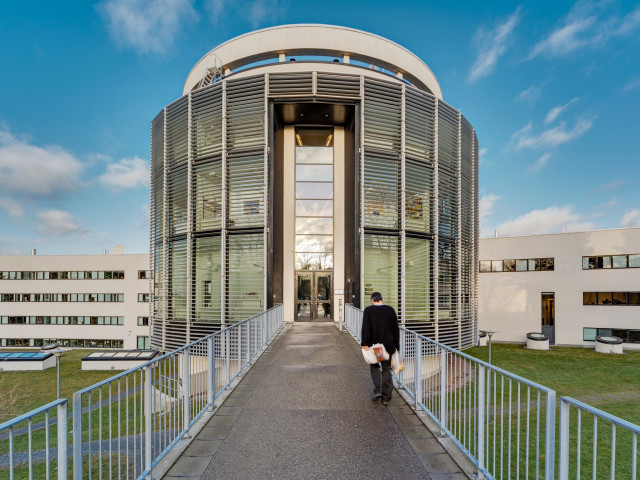The electromagnetic, charged and neutral current weak and strong interactions. The production and acceleration of particles in the laboratory. Interaction of particles with matter. Single particle detectors, particle shower detectors and detector systems. Electron-positron collisions. Proton-(anti-)proton collisions. Electron-proton and heavy ion colliders. Non-accelerator particle physics and the link to cosmology. Particle physics in the future - beyond the Standard Model.
SH2201 Experimental Particle Physics 6.0 credits
This course has been discontinued.
Decision to discontinue this course:
No information inserted
Information per course offering
Course offerings are missing for current or upcoming semesters.
Course syllabus as PDF
Please note: all information from the Course syllabus is available on this page in an accessible format.
Course syllabus SH2201 (Autumn 2008–)Content and learning outcomes
Course contents
Intended learning outcomes
Particle physics probes the structure and interactions of matter at the smallest possible distances. The aim of this course is to give a non-mathematical but complete introduction to the concepts of particle physics with particular emphasis is placed on the experimental techniques used to extract information about the subatomic world. After completing this course, you should be able to:
- Classify the fundamental subatomic particles by their possible interactions.
- Use Feynman diagrams to analyse interactions qualitatively.
- Identify the key features of the interactions and synthesise these to describe the Standard Model of particle physics.
- Explain how particles can be detected and their properties determined by exploiting their interactions with matter. Demonstrate the limitations of different detection techniques.
- Develop particle detection systems by combining detection methods.
- Combine your theoretical knowledge of particle interactions with your more practical knowledge of detection techniques to understand the construction of contemporary experiments.
- Perform dimensional analysis to investigate physical relationships in particle physics
- Interpret data from figures published in the scientific literature and use this to perform calculations and develop conclusions.
- Reflect on the current ‘open questions’ in particle physics and the experiments planned to address these issues.
- Select and critically research a particle physics sub-topic of your choice and present your work to other members of the class during the student seminar day.
Literature and preparations
Specific prerequisites
Recommended prerequisites: Previous knowledge corresponding to SH1009 Modern Physics.
Literature
B.R. Martin and G. Shaw, Particle Physics, (Second Edition), J. Wiley and Sons, 1999.
Examination and completion
Grading scale
Examination
- INL1 - Hand in Assignments, 6.0 credits, grading scale: A, B, C, D, E, FX, F
Based on recommendation from KTH’s coordinator for disabilities, the examiner will decide how to adapt an examination for students with documented disability.
The examiner may apply another examination format when re-examining individual students.
If the course is discontinued, students may request to be examined during the following two academic years.
Other requirements for final grade
Home assignments. One computer-based laboratory exercise. Oral presentation. Oral examination (for grade A).
Examiner
Ethical approach
- All members of a group are responsible for the group's work.
- In any assessment, every student shall honestly disclose any help received and sources used.
- In an oral assessment, every student shall be able to present and answer questions about the entire assignment and solution.